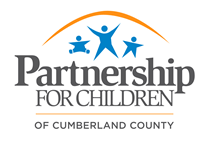There is no time like the present for early childhood educators to accelerate their learning skills, so make plans to attend one of our outstanding Early Educators Skill Enhancement Sessions. Supercharge your knowledge base in these enhancement sessions that provide you with individualized style workshops to interact with our leading movers and shakers in early childhood education, whose expertise is bound to inspire your daily work with children and families.
Connect with early childhood professionals and leaders like you, who are dedicated to keeping up with the field and helping to make a difference in the lives of young children and families in the evolving world of early childhood education.


Upcoming Early Educators Skill Enhancement Sessions.
9 am-3 pm | 9 am-3 pm | |||
1110 East Central Ave., Raeford, NC 28376 | 600 McLean Street, Laurinburg, NC 28352 | 5160 Fayetteville Road, Lumberton, NC 28360 | 600 McLean Street, Laurinburg, NC 28352 | 5160 Fayetteville Road, Lumberton, NC 28360 |
May 19 |
Download the complete class policies and procedures.
Classes offered for the May 16th Session
Emergency Preparedness and Response in Child Care (9:30am-12:30pm) (.3 CEU/3 CHCs)
The new Emergency Preparedness and Response (EPR) in Child Care Training provides early educators with information and tools to prepare for many types of emergencies. The EPR in Child Care Training addresses new NC Child Care Rules on emergency preparedness, current best practice recommendations, and guidance on completing the online EPR Plan. The EPR Plan template can be found on the North Carolina Emergency Management website. NC Child Care Rules 10A NCAC 09 .0607(b) and 10A NCAC 09 .1705(b)(6) requires that a designated individual from all licensed centers and family child care homes complete the training and be responsible for submitting a facility EPR Plan. Upon completion of this event, learners will be able to develop their facility's EPR plan according to guidelines within the NC Childcare Rules. Instructor will assess knowledge gained through presentation and feedback.
Playground Safety (9am-1pm) (4 CHCs)
This learning event will satisfy the current playground safety course required by the North Carolina Division of Child Development. Four specific areas will be addressed: Playground Safety Hazards, Playground Supervision; Maintenance and General Upkeep; and Age and Developmentally Appropriate Equipment. Playgrounds are a learning environment for children; therefore, we want to ensure children are safe while they play, learn and explore the outside experience in early childhood settings. At the completion, learners will be able to assess and inspect their playground structures, discuss the importance of outdoor play and implement meaningful activities while on the playground. Instructor will assess knowledge gained through group activities and feedback provided during the presentation.
Positive Behavior Support (9am-1pm) (4 CHCs) (Part 1 & 2)
Part 1: Positive Behavior Support, An Individualized Approach for Addressing Challenging Behavior – Positive Behavior Support (PBS) is designed for children who exhibit challenging behavior and do not respond to general child guidance procedures. PBS is an approach to developing effective and individualized interventions for children experiencing challenging behaviors. This learning event will provide strategies to change behavior, which includes discussing new skills and strategies, preventing the occurrence of challenging behavior and supporting the child in achieving meaningful, long-term outcomes.
Part 2: Using Functional Communication Training to Replace Challenging Behaviors – Think about challenging behaviors that children in your class exhibit. Why is the child presenting these challenging behaviors? What replacement behavior will you teach? The replacement behavior can involve speech, gestures, signs, or pictures, as long as the strategy is something readily available and appropriate to the child’s developmental level and is realistic to implement. Upon the completion of this event, learners will be able to; select replacement behaviors, implement functional communication, and respond to challenging behaviors through positive guidance using individually appropriate strategies that take into consideration children’s differing needs, interests and styles and abilities. Instructor will assess knowledge gained through presentation and feedback.
